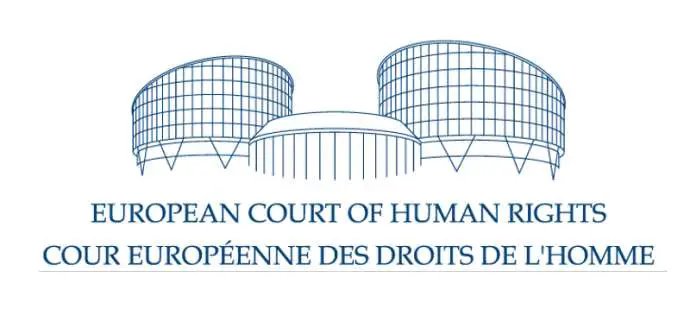STA, 12 June 2019 - The Grand Chamber of the European Court of Human Rights (ECHR) held an oral hearing on Wednesday in Slovenia's case against Croatia over Croatian companies' debt to the defunct Ljubljanska Banka (LB). Slovenia presented the lawsuit as substantiated and admissible.
The government said after the hearing that this had been "the first opportunity for Slovenia to present its arguments and evidence concerning violations committed to the detriment of LB in 48 proceedings before Croatian courts".
Slovenia argues that Croatian judicial and executive authorities have been systematically preventing LB, the biggest bank in the former Yugoslavia, from recovering debts incurred by Croatian companies in the 1990s.
This is even though Slovenia as the bank's owner has had to settle the bank's debt to the retail clients who held their savings deposits with the bank.
Slovenia's claim to just satisfaction amounts to EUR 429.5 million, a figure calculated on the basis of an appraisal of LB's assets conducted by an auditing firm.
Ana Polak Petrič, Slovenia's high representative for succession, pointed out before the ECHR Grand Chamber that the European Convention on Human Rights "guarantees rights to all natural and legal persons".
"The rejection of Slovenia's application by the Court would imply that state-owned legal entities do not enjoy such rights and that the Court is unable to guarantee the protection of their rights," she said.
Slovenia's arguments were presented before the court by Ben Juratowitch, head of the Slovenian legal counsel, who said "Slovenia's application is substantiated and admissible and Slovenia has the right to refer Croatia's breaches to the court in an inter-state application".
Polak Petrič told the press after the hearing that she hoped the key Slovenian arguments had been presented successfully, a key argument being Article 33 of the European Convention on Human Rights "which gives Slovenia the right to file an inter-state application if it finds another Council of Europe member violated the rights stemming from this convention".
Polak Petrič said that these rights apply to all natural and legal persons, including state-owned and that Slovenia met all the admissibility criteria.
Slovenia therefore argues that Croatia's objection regarding the admissibility of the application is unfounded. Any other interpretation by the court would result in a precedent with far-reaching effects, also paving the way for arbitrary and unequal treatment of state-owned companies operating in foreign countries, the press release says.
It adds that in the interest of the international community, outstanding disputes should be resolved as soon as possible and in a peaceful manner, which is of particular importance for the region that is dealing with many unresolved issues.
"Based on the principle of the rule of law and the trust in international justice, Slovenia has brought this outstanding issue before the ECHR" - Slovenia brought the application in 2016.
A video recording of the hearing released by the court shows that today's debate focused mainly on the question of LB's role in relation to the state.
Croatian lawyer Jeremy McBride argued that LB was an entity operating in the interests of the state and was in fact a governmental organisation which he said was not entitled to bring applications before the court.
Polak Petrič and Juratowich countered the claim in detail, emphasizing that the main point was that through their arbitrary conduct the Croatian government and judiciary authorities sought to protect Croatian companies from their debt to the bank being enforced.
They noted that former Croatian Finance Minister and Deputy Prime Minister Slavko Linić boasted in 2015 that as minister he banned any payments being made to LB.
ECHR judges inquired mostly about LB's status and how it is associated with the state. Juratowich underscored that LB was not a government body and was not part of the state apparatus.
Even though state-owned, it is not a state entity nor does it have special powers and has never performed public functions, Juratowich argued.
He also noted that the bank was not state-owned when it issued loans to Croatian companies. The Croatian central bank revoked in 1991 LB's right to operate in Croatian territory, so the Slovenian lawyer said it was ironic of Croatia to claim that the bank was no longer operational.
Slovenia took ownership of LB through a 1994 constitutional law, but still the supervisory board which includes state representatives cannot affect the management's decisions, Juratowich explained.
Given the usual practice in inter-state applications, Slovenia expects the court's decision on the admissibility of its application by the end of 2019 or in the first half of 2020.
The Strasbourg court had already decided on LB claims against Croatian companies in June 2015, but ruled the case, brought by the defunct bank, inadmissible because the bank was state-owned.
Governmental bodies or public companies under the strict control of a state are not entitled to bring an individual application before the ECHR. The court did not deliberate on the case substantively.
.







